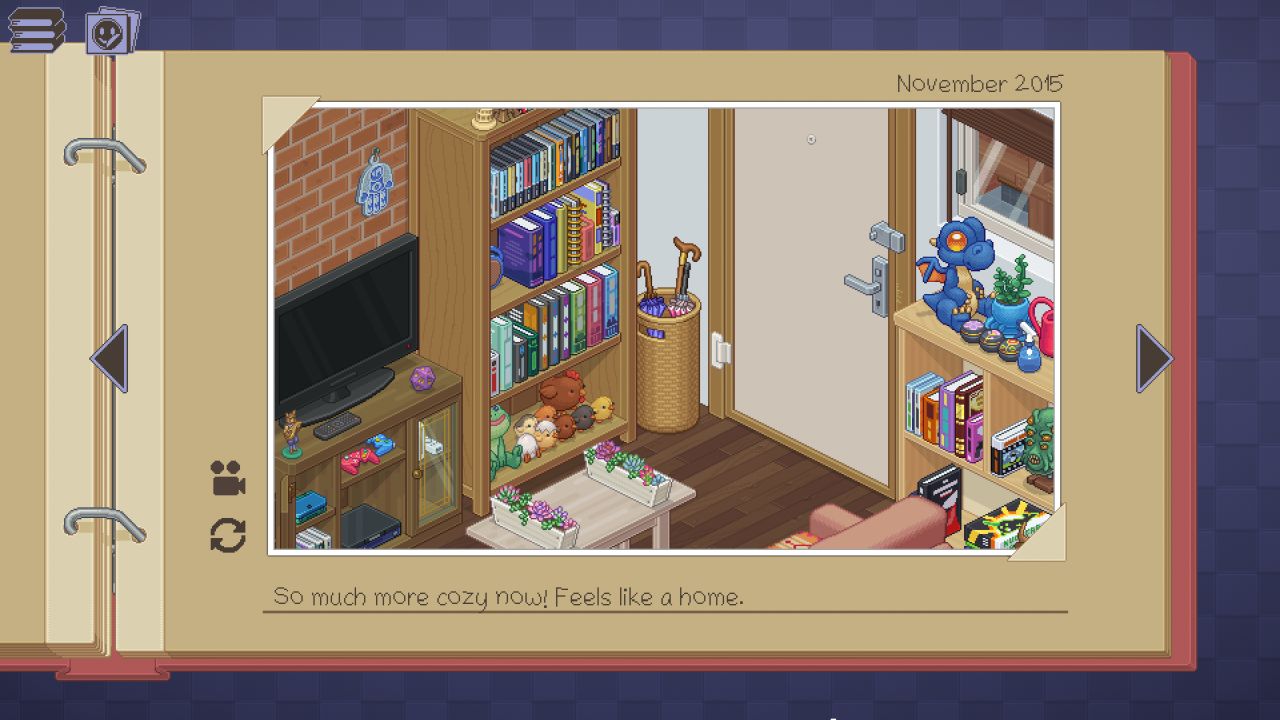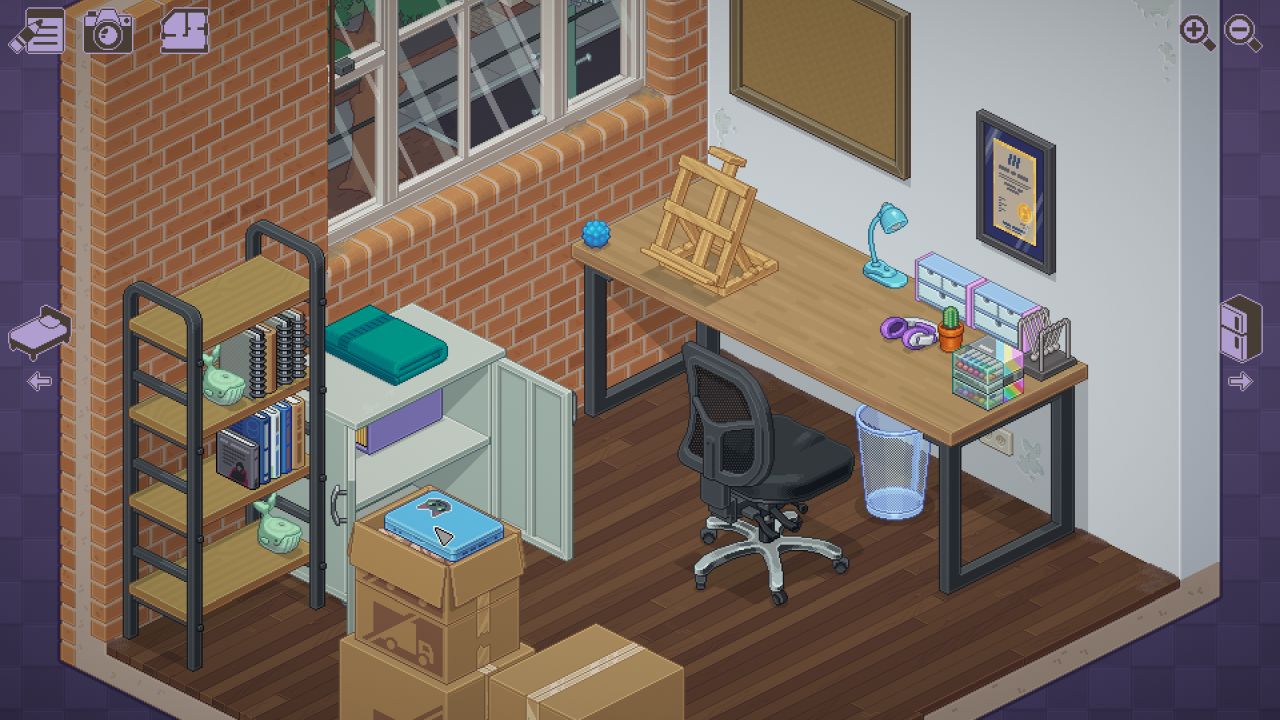An extra special high-five, then, to Unpacking, which not only makes this stressful event a delightful puzzle, but also demonstrates that your life and things actually have incredible meaning. Unpacking takes you through several landmark house moves for the same person, from their 90s childhood bedroom in their new family home, to their university dorm, a shared house with several roomies, single bed couples’ flats, and so on. Each of these levels sees you unpacking possessions from boxes, one at a time, and placing them in a home in isometric cutaway. These grow more complicated - the first level is just the kid’s bedroom, but you eventually have to contend with a two storey house with a separate kitchen, dining and living room, an office, a walk-in wardrobe and more. The rooms and the items are beautiful, detailed and delicate things rendered in pixels, and the puzzle-y challenge is that you must place everything where it is, more or less, supposed to go. You can’t just leave your clothes in a pile on the bed and think, “I’ll get to those later”. You have to hang ’em up. Your plates and cutlery have to go in drawers in the kitchen. Cleaning products go under the sink. Hang your towel up in the shower. It’s incredibly, incredibly satisfying, finding a place for everything. What’s so wonderful about Unpacking is that while it’s telling its own story, it also leaves you space to write a few of your own lines in there as well. Without any text, Unpacking tells you about person growing up and figuring out who they are, sometimes painfully. You notice they like travelling, and collect little souvenir models from places they visit. They like collecting toys. When they leave home and study art, they start watching more movies and playing video games, and you see the ones that are important to them stay with them throught the years. They really like Ghost World. They get more art supplies, more expensive drawing tablets. They always have their cuddly toy pig. The pig is important. Within that there’s some really sophisticated environmental storytelling about who you’re living with, and what it feels like to make space for someone in your life versus someone who won’t make space for you. What it feels like to go back to your parents’ home and realise you’re not part of it anymore. It’s some absolutely wonderful stuff. But around that, I could start to imagine things about this person myself, and put them in the game. “These are their favourite shoes, the ones they wear the most, so those always go at the end of the bed here.” Or: “They never really use this pan, so that always goes at the back of the cupboard.” I felt like Unpacking was inviting me to be playful, and I loved that. After all, being able to engage in play is one of the reasons I like games, and so many games taken themselves so very seriously that I often forget that. Unpacking is an incredibly thoughtful, lovely game that is both empathetic and relatable. You recognise a lot of the places and feelings you see in this game. And you become so attached to the person who’s doing the unpacking that you become excited when things are going well for them, are happy when they move in with people who seem fun, want to bang on the glass when their new flatmate is clearly going to be terrible. And you whoop for joy when you start unpacking one particular room in the last house. You imagine how someone else might see your life the same way. There is care in every line of Unpacking, in the ancient mug that you come to know as The Mug You Always Keep Your Toothbrush In, the way this person’s fashion changes a little bit over time, the sound design that sees cutlery jangle when you put it away, or the paper rustle whenever you pick out something new. Each new box, each new item you pull out, is a little surprise, a little exquisite treasure. Every room you complete in Unpacking is like tearing open a Kinder Egg and carefully constructing the toy inside.

